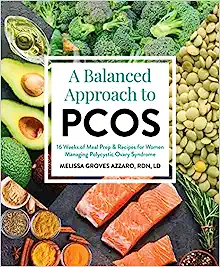Knowing the basics of a balanced diet
Having a balanced diet is essential for achieving overall health and well-being. Eating the right foods in the correct proportions can help you to reach your goals.
Whether it’s to lose weight, gain muscle mass, or simply maintain a healthy lifestyle. In this article, we will discuss the basics of a balanced diet and how to incorporate it into everyday life.
We’ll also look at how the principles of balanced dieting can be applied to video games like Minecraft and other activities that involve achievement.
Balanced Diet Basics
A balanced diet is key to achieving a healthy lifestyle. It’s essential to understand the basics of proper nutrition and how it affects our overall health.
Following a balanced diet can help you maintain a healthy weight, reduce the risk of chronic diseases, and improve your energy levels.
Achieving a balanced diet doesn’t have to be difficult. The Minecraft game has become an unlikely source for educating children on healthy eating habits.
In Minecraft, players need to eat various types of food to stay alive. This encourages them to learn about nutrition and make healthier choices in the game and in real life.
Eat a mix of different foods from all food groups to have a balanced diet. This includes fruits, vegetables, whole grains, lean proteins, and low-fat dairy products.
Planning your meals with these components helps you get all the essential nutrients your body needs and also fosters good eating habits for healthy living in the long run.
Macro-nutrients: Proteins, Fats, Carbs
Proteins, fats, and carbohydrates are the three macro-nutrients essential for a balanced diet. Proteins help build and repair tissues while also providing energy.
They can be found in sources such as meat, eggs, legumes, and dairy products. Fats are another important macro-nutrient that should not be overlooked because they provide insulation to the body’s vital organs and assist with hormone production.
Sources of healthy fats include avocados, nuts, seeds, and certain oils like olive or coconut oil.
Carbohydrates are the main source of fuel for our bodies and provide energy to keep us going throughout the day.
Complex carbohydrates such as whole grains, fruits, vegetables also contain fiber that helps regulate digestion and keeps us fuller for longer periods of time.
However, it is important to note that a balanced diet alone may not be enough to maintain overall health. Regular exercise is also necessary to strengthen muscles and bones while improving cardiovascular health.
Combining regular exercise with a well-balanced diet can lead to optimal results while maintaining good health over time.
Micro-nutrients: Vitamins & Minerals
Micro-nutrients are essential compounds that our body needs in small amounts to function properly. Vitamins and minerals are two types of micro-nutrients found in foods, including fruits, vegetables, whole grains, dairy products, and meats.
They play a significant role in maintaining good health and preventing chronic diseases.
Vitamins help the body do many important things like boosting immunity, producing energy from food, keeping skin and hair healthy, and regulating metabolism.
There are 13 essential vitamins classified into two categories- water-soluble (vitamin C & B complex) and fat-soluble (vitamin A,D,E,K). Eating a variety of fruits and vegetables is an easy way to ensure adequate vitamin intake.
Minerals are inorganic elements that assist the body’s biological processes like building strong bones & teeth; muscle contraction; nerve transmission etc..
The most common minerals include calcium, iron, potassium, sodium among others. These micro-nutrients can be obtained through eating a balanced diet or taking supplements if needed.
A balanced diet consisting of wholesome foods rich in vitamins & minerals can provide numerous health benefits while preventing deficiencies and disorders later on.
Portion Sizes & Frequency
Maintaining a balanced diet, portion sizes and frequency play a crucial role. Consuming the right amount of food at regular intervals can help keep your energy levels stable throughout the day, prevent overeating and maintain healthy weight.
Portion sizes are important because they determine how much you eat in one sitting. Ideally, a serving size should contain all the necessary nutrients required for your body’s functioning. It is essential to measure your food portions as visual estimation can often lead to overconsumption.
Frequency of meals refers to how often you eat throughout the day. Experts recommend eating small and frequent meals every few hours instead of three big meals a day.
This approach keeps your metabolism active, ensures that you don’t get too hungry and promotes better digestion. Additionally, it prevents overeating during any one mealtime since you won’t feel famished by then.
Healthy Foods to Include
Eating a balanced diet is essential for maintaining good health and well-being. A well-balanced diet should include healthy carbohydrates, proteins, fats, vitamins, minerals, and fiber.
Whole grains such as brown rice and quinoa are excellent sources of carbohydrates that provide sustained energy throughout the day. Additionally, consuming a variety of fruits and vegetables provides the body with essential vitamins and nutrients.
Proteins are crucial for the growth and repair of body tissues. Good sources of protein include lean meats like chicken or turkey breast, fish such as salmon or tuna, eggs (including egg whites), nuts and seeds like almonds, walnuts, and sunflower seeds, and lentils and beans like chickpeas, black beans, and mung beans.
Healthy fats consumed in moderation can help reduce inflammation in the body while improving brain function. Avocados/nuts-seeds/coconut oil/olive oil/fatty fish (salmon)/dark chocolate in moderation can be included in a balanced diet.
Eating healthier doesn’t have to be hard or pricey. Just replace processed foods with fresh whole foods! By making small changes to your eating habits over time, you will improve your overall health and feel more energized each day!
Unhealthy Foods to Avoid
It is common knowledge that unhealthy foods can lead to a plethora of health problems. However, the tricky part is identifying what exactly constitutes unhealthy food.
Examples of unhealthy foods include processed snacks such as chips and candy bars, which are high in sugar and saturated fats. Fast food meals also contribute to an unhealthy diet due to their excessive amounts of sodium and trans fats. Additionally, sugary beverages like soda and energy drinks are not good for our health.
Consuming these types of foods regularly can lead to obesity, cardiovascular diseases, diabetes, and other chronic health conditions.
To avoid consuming too much unhealthy food, it’s important to understand the basics of a balanced diet.
Eat a variety of healthy foods like whole grains, lean proteins (chicken or fish), fruits, and vegetables. Eat healthy fats like nuts and avocados and avoid foods high in saturated fat like hamburgers or bacon.
Additionally, water should be your main beverage with occasional consumption of moderate amounts of coffee or tea rather than sugary drinks.
Eating healthy foods can improve your physical health and mental clarity, providing energy to handle daily tasks.
Eating junk food occasionally is fine, but it should not replace a healthy diet that is based on nutritious foods.
Conclusion
In conclusion, a balanced diet is essential for maintaining good health and preventing chronic diseases. It involves eating foods from all the food groups in the right proportions to provide your body with the nutrients it needs.
A balanced diet should include plenty of fruits and vegetables, whole grains, lean proteins, healthy fats, and low-fat dairy products.
It’s important to limit foods that are high in calories, sugar, sodium, and unhealthy fats such as saturated and trans fats.
These types of foods can contribute to weight gain, high blood pressure, heart disease, diabetes, and other health problems.
Instead of restricting certain foods or following fad diets that promise quick results but aren’t sustainable long-term solutions for good health.
Overall adopting a healthy lifestyle by incorporating physical activity into your daily routine along with a balanced diet can help you achieve optimal health.
Small changes towards healthier habits can make big differences over time. Remember to always consult with your healthcare provider before making any significant changes in your diet or physical activity level.



